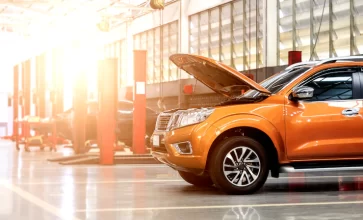The Role Of Plastics In Automotive Manufacturing
The modern automotive industry is a complex ecosystem of materials, designs, and innovations. Historically, steel was the predominant material used for vehicle manufacturing.
However, as time has progressed, the industry has adopted a myriad of other materials for varied reasons, one of the most significant being plastics. But why have plastics become so vital in this sector?
The Advantages Of Plastics
- Weight Reduction: Plastics are considerably lighter than metals. By replacing traditional metal parts with plastic ones, the overall weight of the vehicle is reduced. This leads to better fuel efficiency and performance.
- Design Flexibility: Plastics can be moulded into intricate shapes, allowing designers greater freedom in creating unique and functional vehicle components.
- Durability: Contrary to popular belief, some high-performance plastics are incredibly durable and resistant to impact, corrosion, and harsh weather conditions. This makes them perfect for certain car components.
- Cost-Effectiveness: In many instances, producing plastic parts can be cheaper than their metal counterparts. This cost-saving can be passed onto the consumer, making vehicles more affordable.
Applications Of Plastics In Vehicles
Plastics aren?t just used in one or two areas of a car; their application is widespread. Here are some of the main uses:
- Interior Components: From the dashboard to the seatbelts, plastics play a significant role. They offer an appealing aesthetic finish, can be moulded to ergonomic designs, and are often softer to the touch.
- Exterior Components: Bumpers, door handles, and even body panels in some cars are now made of plastic. They resist corrosion, can be easily coloured, and are resilient against minor impacts.
- Electrical Insulation: As vehicles become more technologically advanced, their electrical systems become more complex. Plastics are excellent insulators, making them ideal for protecting electrical components.
- Engine Components: Some engine parts that aren?t exposed to extreme temperatures are made from high-performance plastics. This reduces the weight of the engine and can improve performance.
The Environmental Impact
While plastics offer numerous advantages, their environmental footprint cannot be ignored. The automotive industry is continuously seeking sustainable alternatives and recycling methods to address this concern.
- Recycling Initiatives: Many car manufacturers are investing in research to recycle plastics from old vehicles. This includes using old plastic parts to create new ones or repurposing them for other industries.
- Bioplastics: These are plastics derived from renewable biomass sources. Bioplastics can reduce our dependence on petroleum-based plastics and are often more easily biodegradable.
Simply Plastics, among other companies, has been advocating for the responsible use and recycling of plastics in the automotive industry, ensuring that while we reap the benefits of these materials, we also minimise our environmental footprint.
Challenges And The Future
As with any material, there are challenges associated with the use of plastics in automotive manufacturing:
- Heat Resistance: Not all plastics are suitable for areas of the car that experience high temperatures. Research is ongoing to develop high-performance plastics that can withstand more extreme conditions.
- Public Perception: Many consumers have a perception that plastic components are inferior to metal ones. It?s crucial for manufacturers to educate consumers about the benefits and durability of modern plastics.
- Sustainability: As mentioned, while there are significant strides in recycling and bioplastics, there is still much work to be done to make the use of plastics in vehicles entirely sustainable.
Looking forward, the role of plastics in automotive manufacturing is expected to grow. With advancements in material science, the development of even more durable and lightweight plastics is on the horizon. Their versatility, combined with sustainability initiatives, will ensure that plastics continue to play a pivotal role in the cars of the future.
Conclusion
The automotive industry has evolved tremendously over the past few decades. Plastics have emerged as invaluable allies in this journey, offering a perfect blend of versatility, durability, and cost-effectiveness.
As the industry and material science continue to advance, the bond between cars and plastics will only strengthen, driving towards a more efficient and sustainable future.
Keep Reading:






















